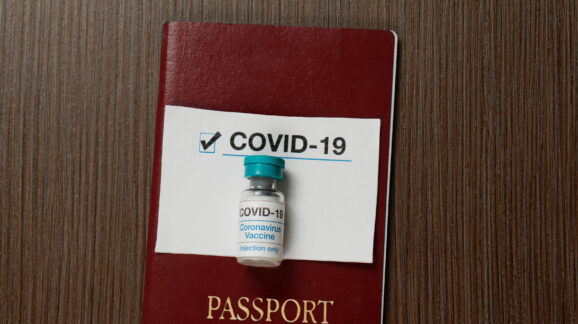An Idea Whose Time May Never Come
Countries worldwide have announced plans to implement vaccine passports—electronic or paper credentials that show a person has immunity to Covid-19 through either vaccination or recovery from the disease. U.S. states and private businesses seem ready to follow suit. New York State has launched the Excelsior Pass for New Yorkers to prove immunity with a machine-readable QR (“quick response”) code. Walmart will provide an app letting customers vaccinated at the store share their status. At least 17 private initiatives to provide vaccine credentials are in development.
The goal of a passport system is to allow immunized individuals to resume business, normal activities, and travel, replacing the current restrictions imposed on everyone, regardless of infection risk. Many are concerned that passports could exacerbate existing inequities for poor people who cannot afford smartphones—or create privacy headaches for those who can. Some complain that granting special privileges to those lucky enough to gain access to vaccination is morally questionable. Though U.S. public opinion is divided on the idea, Israeli researchers believe that the country’s digital “green pass” program induced people to be vaccinated so that they can resume normal activities and that public use of the passes has helped reassure hesitant people that the shot is safe.
The good news: the evolving vaccine rollout and imminent attainment of herd immunity may render the whole idea moot. To achieve herd immunity from Covid-19, roughly 70 percent to 75 percent of the population must be immune, whether because of past infection or vaccination. Given current numbers in both categories, we are already close to that mark.
Read the full article on City Journal.
